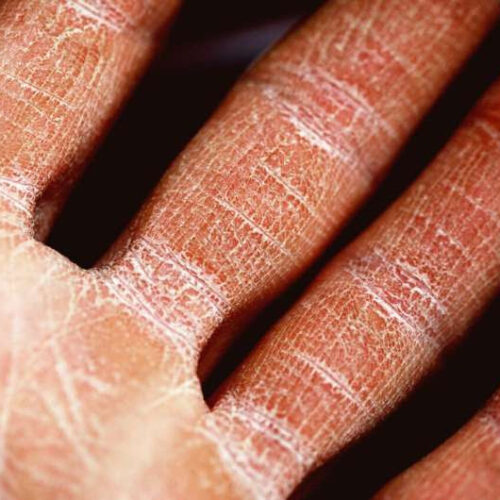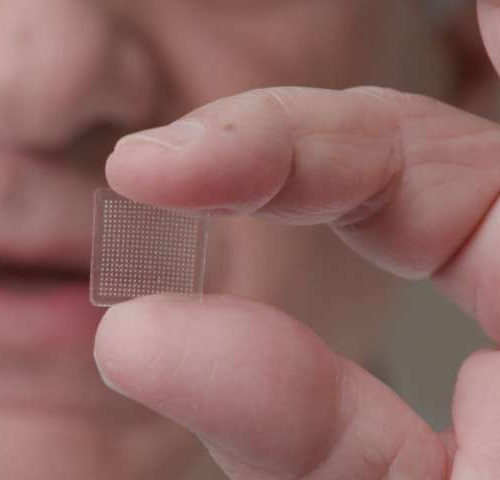954Ashley Winter, MD, remembers the first time she Googled the skin condition lichen sclerosus. Most of the websites listed the autoimmune condition as a rare disease. In the realm of genital health, some conditions remain shrouded in silence and consequently are more likely to go undercounted and underdiagnosed, Winter, a urologist based in Los Angeles,...
Tag: <span>Dermatology</span>
Don’t Be Misled: Proper Dermatology Diagnoses Crucial for Accurate Treatment
Perioral dermatitis can look a lot like atopic dermatitis. For primary care clinicians, the similarity in presentation can create challenges in providing the right treatment and knowing when a patient needs to be referred to a dermatologist. The two conditions look similar; both present with itchy, swollen rashes. But atopic dermatitis can be located anywhere...
Inside the 2024 AAD Acne Guidelines: New Therapies Join Old Standbys
SAN DIEGO — Just weeks after the American Academy of Dermatology (AAD) published its updated acne management guidelines, a dermatologist who helped write the recommendations provided colleagues with insight into recently approved topical therapies, the importance of multimodal therapy, and a controversial report linking benzoyl peroxide (BP) to the carcinogen benzene. In regard to topical...
Study provides new insights for medication to treat atopic dermatitis
by National Jewish Health Credit: Unsplash/CC0 Public DomainPatients with atopic dermatitis, the most common inflammatory skin disease in the general population, often have vascular changes that lead to a loss of proteins in their skin and symptoms like oozing, bleeding, infection and redness. In a recent study, researchers at National Jewish Health tested a medication...
No increased skin cancer risk with topical immunosuppressant ointments
BOSTON – Adults with the chronic skin condition atopic dermatitis can rest easy in the knowledge that two topical immunosuppressant medications commonly prescribed to treat the condition do not appear to increase the risk for the most common forms of skin cancer, despite package label warnings to the contrary, researchers from Massachusetts General Hospital (MGH)...
Researchers develop peptides for treating gastrointestinal disorders
Reviewed by James Ives, M.Psych. (Editor) Milestone for therapeutic development of peptides against gastrointestinal disorders The fascinating family of trefoil factor peptides brings hope to both research and industry to improve the treatment of chronic disorders such as Crohn’s disease. For the first time, a team led by ERC awardee Markus Muttenthaler from the Faculty...
Scientists identify chemicals in noxious weed that ‘disarm’ deadly bacteria
by Carol Clark, Emory University Scientists have identified specific compounds from the Brazilian peppertree—a weedy, invasive shrub in Florida—that reduce the virulence of antibiotic-resistant staph bacteria. Scientific Reports published the research, demonstrating that triterpenoid acids in the red berries of the plant “disarm” dangerous staph bacteria by blocking its ability to produce toxins. The work...
Common Sunscreen Mistakes
Sunscreen is an essential commodity to protect the skin from harmful effects of ultraviolet (UV) rays. It is also used widely to prevent skin cancer. However, it is important to apply sunscreen appropriately to get its full benefits. Is sunlight always good? Although sunlight is vital for many physiological functions, such as vitamin D synthesis...
What and where are dermatomes?
Dermatomes are areas of skin that send signals to the brain through the spinal nerves. These signals give rise to sensations involving temperature, pressure, and pain. The part of a nerve that exits the spinal cord is called the nerve root. Damage to a nerve root can trigger symptoms in the nerve’s corresponding dermatome. Below,...
Researchers develop new microneedle array combination vaccine delivery system
by Elsevier In parallel to their current work on a potential coronavirus vaccine, researchers at the University of Pittsburgh School of Medicine have developed a new vaccine delivery system for vaccines using live or attenuated viral vectors: a finger-tip sized patch that contains 400 tiny needles, each just half of one millimeter. Their progress is...






